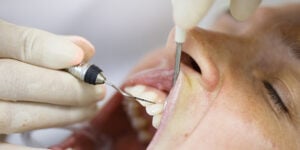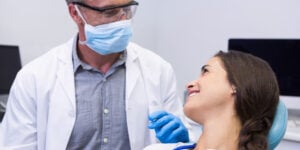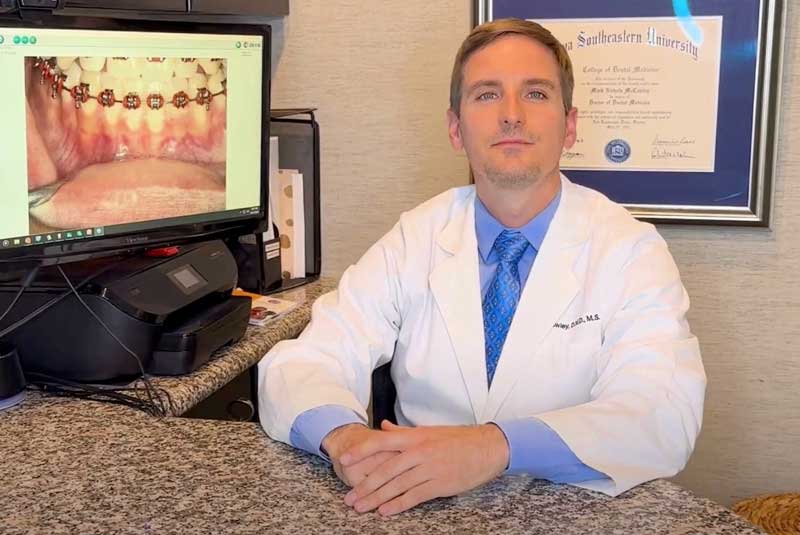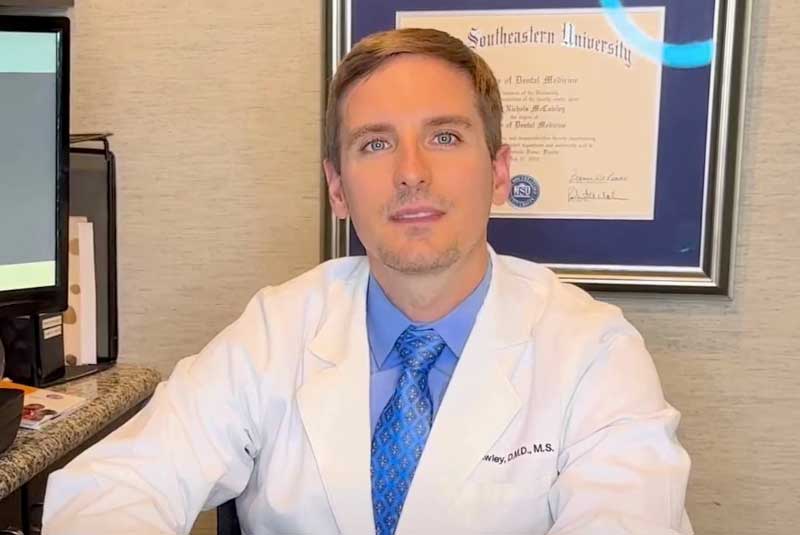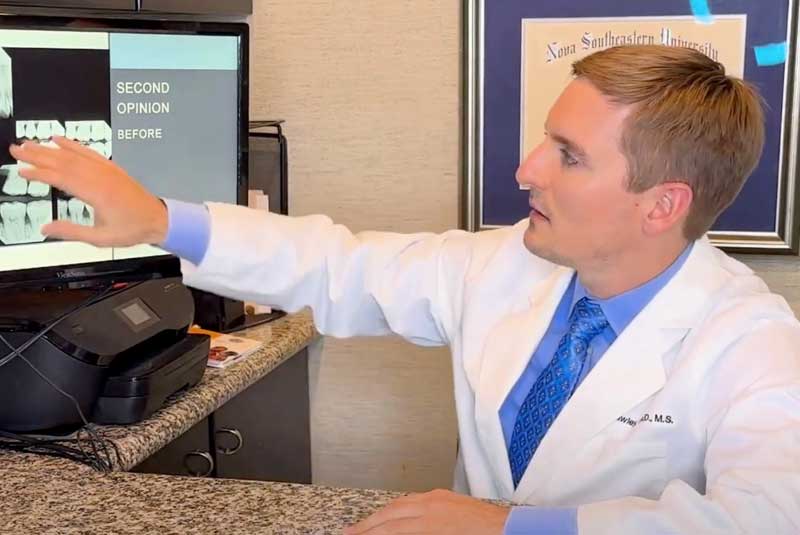| ✅ Reviewed by Dr. Tom McCawley | 🕒 Reading time: four minutes |
Many people feel discouraged when they’re told they have gum disease. Because gum disease is largely preventable, it can feel frustrating, even shameful, to hear the diagnosis.
Gum disease is common and often silent in the early stages, but it is also preventable and treatable. With the right daily habits and regular professional care, you can protect your smile for life.
Here are seven simple ways to keep your gums healthy, plus answers to common questions about diagnosis and treatment.
1. Brush at Least Twice a Day
Plaque builds up quickly, and brushing morning and night removes the bacteria that cause gum inflammation. If possible, brush after meals too. Using an electric toothbrush can make this even more effective by disrupting more plaque with less effort.
2. Clean Between Your Teeth Every Day
Brushing only cleans the surfaces of your teeth, bacteria still collect in the tight spaces in between. Traditional string floss is highly effective because it wraps around the tooth and cleans under the gumline. For patients who find flossing difficult, alternatives like small interdental brushes can also help remove plaque in hard-to-reach areas. The key is to choose a method you’ll use consistently.
3. Schedule Regular Professional Cleanings
Even with great home care, bacteria and tartar can collect below the gumline. Professional cleanings every six months or sometimes every three months remove buildup in the places you can’t reach, lowering your risk for gum disease.
4. Get a Yearly Gum Exam
A periodontist or dentist can measure your gums for early signs of infection. Catching gum disease early often means it can be treated with a cleaning or antimicrobial therapy instead of surgery.
5. Pay Attention to Warning Signs
Bleeding gums are not normal. If your gums bleed when brushing or flossing, it’s always a sign of infection. Other symptoms include persistent bad breath, gum recession, or teeth that feel loose. Early treatment can stop gum disease before it progresses.
6. Eat More Fruits and Vegetables
Crunchy produce like apples, carrots, and celery naturally scrub your teeth while stimulating saliva to wash away bacteria. Leafy greens such as spinach and kale are packed with vitamins and minerals that support gum health, while celery has even been called “nature’s dental floss.” Dairy products like cheese and yogurt also play a role by neutralizing acids and supplying calcium to strengthen teeth.All of these may help but are not a substitute for professional treatment.
7. Break Harmful Habits
Smoking is one of the leading risk factors for gum disease and tooth loss. Quitting is one of the best things you can do for your oral health. If you chew gum, choose sugar-free options, they stimulate saliva and help clear food particles when brushing isn’t possible.
What If Gum Disease Has Already Started?
Prevention is the goal, but gum disease sometimes develops despite your best efforts. Once infection has reached below the gumline, home care alone cannot reverse it.
At the McCawley Center for Laser Periodontics & Implants, we use advanced diagnostics and treatments to target the root cause of the infection:
- Microscopic and bacterial testing, including the SimplyTest® PERIO kit, to identify the harmful bacteria behind gum disease.
- Scaling and root planing, a deep cleaning that removes hardened plaque below the gumline and smooths the root surfaces so bacteria cannot easily reattach.
- LANAP® laser therapy, which selectively removes diseased tissue, disinfects the pockets, and stimulates bone regrowth.
- Antimicrobial therapy, carefully chosen to target the exact pathogens in your gums.
This approach doesn’t just treat symptoms, it addresses the infection itself, helping to protect your teeth and overall health.
Protect Your Gums for Life
If you’ve noticed bleeding gums or other warning signs, schedule a consultation at the McCawley Center for Laser Periodontics & Implants in Ft. Lauderdale today. With advanced technology and personalized care, we can help you stop infection and keep your gums healthy for the long term.
To book an appointment at our periodontal office in Fort Lauderdale, FL, call (954) 807-4829 or visit us at 800 East Broward Blvd #706 Fort Lauderdale, FL.
FAQs
Gum disease is usually diagnosed during a dental exam by measuring the depth of the spaces, or “pockets,” between the teeth and gums. A small probe is gently placed along the gumline to check for inflammation, bleeding, and pocket depth. X-rays may also be taken to see if there has been any bone loss around the teeth.
Antibiotics can help reduce harmful bacteria, but they cannot remove the tartar and biofilm hiding under the gums. Professional cleaning or laser treatment is needed to physically eliminate these deposits and allow the gums to heal.
Nutrients like vitamin C, vitamin D, and omega-3 fatty acids support gum and bone health, but no supplement can cure gum disease or reverse gum recession. Once gums have pulled away, only professional treatment can restore them. Supplements can be a healthy addition, but they are not a substitute for dental care.
Most general dentists can diagnose and treat the early stages of gum disease, but advanced cases often require a periodontist, a specialist in gum health and supportive structures. If you are in South Florida, the McCawley Center for Laser Periodontics & Implants in Ft. Lauderdale offers advanced treatments, including laser therapy and antimicrobial care, to stop infection and restore gum health.






